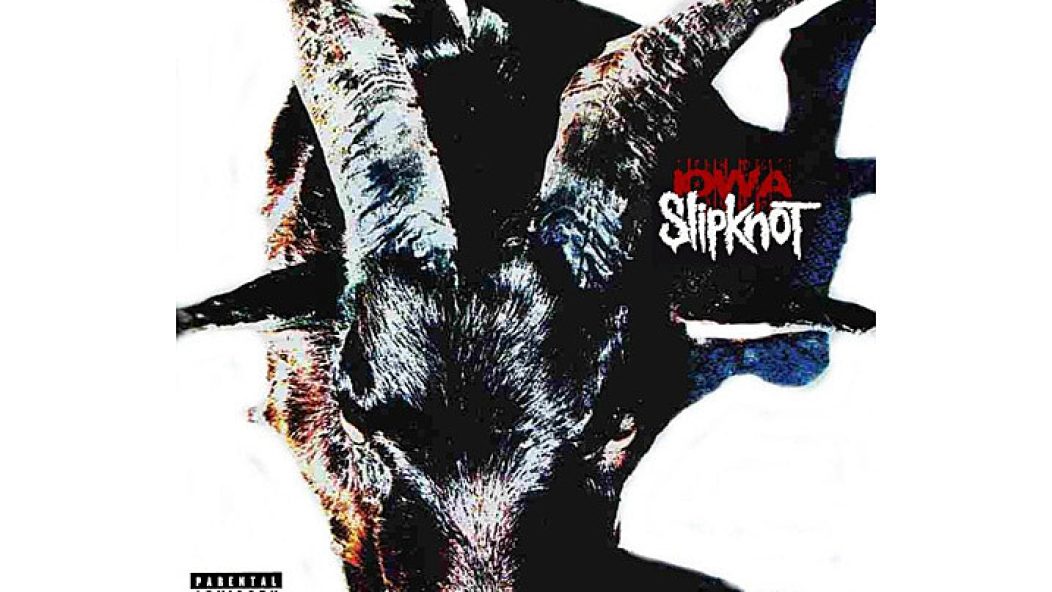
Slipknot contemplated breaking up after first album; called it a “f*ck-you to the industry”
Slipknot’s sophomore album Iowa almost didn’t happen.
After the release of their 1999 self-titled debut, frontman Corey Taylor said the band contemplated the idea breaking up and leaving their legacy at one release.
“…That was one of those ideas that I was so in love with because it was such a fuck-you to the industry,” remembers Taylor. “Just to pull a total Sex Pistols and make one monstrously fucking destructive album then just be like, ‘No, that’s all you fucking get, fuck you.’ I just remember the excitement on all of our faces and in all of our hearts. I even told some friends ‘Yeah dude, we’re gonna break up’ and they were like ‘What the hell are you talking about?’ They just thought we were fucking crazy.”
For the 15th anniversary of Iowa, Taylor is heading to the airwaves for a special broadcast on his Beats1 radio show “A Series of Bleeps with Corey Taylor” where he’ll talk about how the album almost didn’t happen, the impact of 9/11 after its release and more. At 7 p.m. PST tonight, you can catch him playing his favorite tracks off Iowa, as well as other songs that influenced Slipknot during the creation of the record.
AP sat down with Taylor to discuss the making of Iowa, its success and how Slipknot continue to dominate the world of heavy music.
What was your process for writing and composing lyrics? Did anyone else in Slipknot contribute to this process or at all lyrically?
I’d probably say it was about 98 percent me. I know Joey [Jordison] gave me some stuff that he wanted to me to try and work in, which I was totally cool with. Paul [Gray] gave me some ideas. Clown [aka Sean Crahan] brought in some stuff. It was really kind of a collaborative effort. I’d say about 98 percent of the lyrics came from me or I used stuff that we had all kind of talked about to inspire me, to kind of go down those roads. I think for the most part, the majority of the inspiration came from us just being completely destroyed from being on the road for so long then having to go right in and make an album. But at the same time, still being hungry, still being pissed off and ready to keep going. Everybody was pressuring us to write all these singles and we just told everybody, “Fuck you—we’re gonna do what we want to do.” I think that was the byproduct: It came out so vile and dense and fuckin’ crazy. And I’m still trying to figure out if that was a good or bad thing, man. It is a brutal fuckin’ album.
Were most of the lyrics written on the road or in the studio as the songs started to come together?
It was kind of inbetween.The lyrics for “People = Shit,” I had half of them written down as we were working on it on the road. But it wasn’t really until we had about or month or two at home when we were able to do some pre-production with Ross [Robinson] so I really took that time to get the lyrics down as well as I could. For me, the lyrics aren’t finished until the recording is done. So I’m constantly reworking stuff and trying to shape not only what I say, but how I say it. Right up to the studio, and even in the studio, I’m jotting down notes and stuff, trying to make sure that everything is exactly what I want to say. It was really kind of a work in progress all the way up until the finished product, and I think that’s the best way to do it because sometimes in retrospect you think of something and go, “Ah, Christ, that would have been great to work in here.” I think that keeps it fresh, it keeps a certain vitality to it that I think is missing if you just go off the notes you made months before. It keeps that life intact.
What did you think of Iowa when the album was first completed compared to now, 15 years later?
The funny thing about Iowa was that I was convinced it was going to be way too scary. This is gonna fuckin’ terrify people, and there was a part of me that was like, “Hell yeah, fuck these people, fuck the fascists, let’s go for it.” And then there was that other part of me that was like, “Ah shit, there goes all the shit we built up over the past 18 months.” The cool thing is that I remember listening to it and just being like “Holy shit, this is fucking dark.” I had never heard anything like it before. It was such a great collision of tone and chaos and structure, and I’ve said it before, that album sounds so fucking thick, you could wear it like a coat. It just has that certain quality to it that the only thing I can compare it to is that certain sense you get from [late-’80s Chicago noise-rock band] Big Black albums, it just makes you go, “Holy shit, that’s dirty.” So listening to the album, for a long time, I listened to it for about two to three months once it was done, but then I stopped because it reminded me too much of the hell I was putting myself through at the time. It wasn’t until about five years ago that I could come back and really listen to that album with different ears and go “Holy shit, I forgot how amazing this album was.” So it’s really one of those things where it’s so good that I can listen to something and come back to something I had made in a totally different time in my life, different phase and still feel proud of what I had done. Surprised by how fierce and how volatile it really feels.
“…today it would be a fucking mushroom cloud in a sunflower field.”
What were the band's expectations for Iowa going into the studio? What were the band's expectations for its impact on the world and for yourselves as individuals?
I think we all expected it to do probably as well as the first album did. The first album is fucking ferocious, but there’s still a lighter quality to it. There was a lot more melody on it that people could gravitate toward. Iowa was just the fucking towering fucking inferno. I think our expectations were: “You know what, fuck the dumb shit, let’s make a lifestyle album” at a time when no one was doing that. Just take it out on the fucking road and sell this fucking one show at a time. I mean, we had “Left Behind,” which was a great single and great song, but we weren’t sure if anyone was gonna play it, and for about five seconds they did—right up until 9/11 happened and then everything went fucking dead on us. So it literally came back to what we were trying to do in the first place, which was taking the message out to the people live and sell it one audience at a time. Eventually it caught up, but at the time it was way too fucking real for people and obviously in hindsight ,we had no idea that something like that was going to happen. It was hard, especially being the country where we had taken such a hit. It made people tense up and kind of go into panic mode. But I think in a way, the Iowa album kind of helped people to come out of that. It gave them a sense of courage and let them stand up and say “You know what, fuck you. We’re not gonna let you make us scared. We’re going to use this to stand up for ourselves and remind the world that we’re Americans, we can take it.”
“You got to remember, long ago, people thought we were just gonna be in and out. We would turn into just a gimmick band that really just rested on its visuals—people forgot just how talented we fucking were. Every album we put out is a reminder of that and it really pisses people off. Just when they think they have us flushed down the toilet, we come back and we reinvent everything. It really infuriates people.”
If IOWA were released today for the very first time, what kind of impact/reception do you think it would receive?
I’d like to think it would have the same kind of impact but in a completely different way—but still just as palpable. Just as strong an impact as it did back then, because it does sound different and even at the time, it sounded different than anything that was coming out of anyone. I think today it would be a fucking mushroom cloud in a sunflower field. It would just decimate everything. That’s not saying anything about the newer metal that’s out there: What I’m saying is that it’s a testament to just how strong and unique that album is. That album, even 15 years, later stands up so well when you stack it against anything. For us, it’s really the proof in the pudding of what kind of lasting legacy do you think Slipknot will have. That album is one of the key elements to that. You got to remember, long ago, people thought we were just gonna be in and out. We would turn into just a gimmick band that really just rested on its visuals—people forgot just how talented we fucking were. Every album we put out is a reminder of that and it really pisses people off. Just when they think they have us flushed down the toilet, we come back and we reinvent everything. It really infuriates people. The first album really sent the precedent, but Iowa really showed people that no matter what, you’re not going to be able to figure out what we’re going to do next. I’m really proud of that, man.
“People need to feel the fucking destructiveness of Iowa.”
You and Clown have teased the notion that after the first record you wanted to just drop off and call it quits. What encouraged you guys to keep releasing music rather than taking that route?
Well, I’d love to talk shit on people that convinced us to make another album, but honestly, it was calming influences, I guess. Me, Clown, Joe and Paul and some others would basically campfire: We would just hang out and talk nothing but good shit. Just talk ideas and that was one of those ideas that I was so in love with because it was such a fuck-you to the industry. Just to pull a total Sex Pistols and make one monstrously fucking destructive album then just be like, “No, that’s all you fucking get, fuck you.” I just remember the excitement on all of our faces and in all of our hearts. I even told some friends “Yeah, dude, we’re gonna break up,” and they were like “What the hell are you talking about?” They just thought we were fucking crazy. But then of course, the outside influences started to weigh in and went “Well… maybe you shouldn’t break up.”
So we got to thinking about it and I remember playing a gig where there were no dressing rooms. There was just a conference room and we were all in there getting ready and someone had left a dry-erase board in there. With dudes in a band, you might as well have just left cans of spray-paint, some shit’s gonna go down. Clown starts drawing pictures of what the next album’s cover would be, and of course it was obnoxious: A weird fucking badly drawn dog just pissing on shit, and it was just fucking ridiculous. But then he wrote ‘Iowa’ on the cover and said, “We should totally name the next fucking album Iowa.” And we all loved that. We were so fucking into it. I can remember even after we were almost finished with the album, and there was an idea of changing the name. I was like, “No, fuck that, it has to be Iowa.”
People needed to know what it was like for us growing up in that fucking hell hole. People need to feel the fucking destructiveness of Iowa. We have to fucking stick a knife into that fucking midwest PC bullshit and let it die and spit on it as it fuckng dies. I know for a fucking fact that was a determining factor about it. We had the name, let’s just write the fucking album and get to it. In retrospect, it was definitely the right idea, I acquiesce to that. But at the same time, I still have visions of how punk rock it would have been to put out a crazy first fucking album then just split. Go back to our old jobs and just be like, “What’re you talking about? I don’t even know what you’re talking about.”
Listening to Iowa now, what would you have done differently on the album?
Obviously, hindsight is going to be 20/20. The thing about this band is that we always prided ourselves on not giving into clichés. Which is one of the reasons Iowa came out the way it did, by basically shunning all the clichés, but then in a lot of ways, I think we eventually gave into some of the clichés that probably should have been thought out a little more. Obviously the drugs, the booze, the bullshit, it all kind of caught up with us. Because we didn’t let it get to the music, but we let it get to us. You know, it twisted us in a lot of dark ways. Some of us got out of it and then some of us didn’t. I can’t say that I would change anything just for the fact that I wouldn’t be where I am now without it. Obviously, I wish we hadn’t lost certain people. Retrospect is always the best way to look at things because woulda, shoulda, coulda. It’s hard to this day, but I think if you were to ask anyone who were still here if they would change anything, I don’t think they would change anything—with the exception of still being around, obviously. It’s the path you take, it’s the path you have to follow, because if you don’t we wouldn’t be having this conversation right now.
Hear more about Slipknot's highest-charting album on Taylor's Beats1 radio show “A Series of Bleeps with Corey Taylor” at 7 p.m. PT tonight and again at 6 a.m. PT Thursday. Tune in here.









